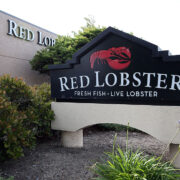When I started working at Nickelodeon Online in the late 1990s, an executive gave me advice I’ll never forget. “Never use the word ‘fun,'” he said, challenging me to demonstrate fun through descriptive scenes, joyful details, and clever jokes. As a result of that guidance, my work was always creatively compelling and brand-specific. Writers know this technique as “show, don’t tell.”
But leaders also benefit tremendously from this understanding when it comes to avoiding what I call “badjectives”–adjectives so generic and broad that they have virtually no impact. We see them all the time in leadership speeches, emails, posts, and videos explaining how “great” an idea is, sharing the “amazing” impact it will have, and praising the “very good” thinking that went into the project.
These words seem useful, but how much impact do they carry? An air fryer can be great, a floor mop can be amazing, and a tuna melt can be very good. Surely I shouldn’t use the same word to describe a breakthrough business idea that I would for a sandwich (even if they did perfectly grill the bread).
To be clear, I’m not saying to remove ALL adjectives. Just choose the most meaningful ones. If you’re a Steve Jobs fan, tech columnist Jason Aten points out that Jobs used as few words as possible, specifically avoiding overused adjectives like “new,” “great,” “amazing,” or “powerful.”
“It’s not that he never used them,” Jason writes. “But when he did, they had meaning.”
Compare these two collections of adjectives:
- Important
- Great
- Terrific
- Amazing
- Very good
- Urgent
- Profitable
- Efficient
- Unprecedented
- Lifesaving
The Group 1 badjectives are nearly pointless compared with the adjectives in Group 2. When we say something is “great” or “very good,” there’s little indication of scale, reason, or specific meaning.
Marketing strategist Geoffrey James talks about badjectives (without using that word) that suffer from being clichés in communications from tech companies describing their products. “The marketer is always ‘excited’ to announce the product, which is ‘innovative,’ ‘cutting-edge,’ and, of course, ‘industry-leading,'” Geoffrey writes, noting that when it comes to showing, not telling, “most marketing writers–in both publishing and business–don’t understand the difference.”
So why do we use badjectives? Because they’re quicker and easier than digging for specific words and phrases. But imagine the impact of these phrases if a manager said or emailed them to you:
Wow, Lisa, the new market you discovered could result in an entirely new revenue stream!
—————————
This campaign will have an amazing impact. I invite you to join us!
This campaign will make health care more accessible and affordable. I invite you to join our mission to save and improve lives!
—————————
I believe our marketing strategy is weak.
I believe our marketing strategy focuses too much on product benefits and not enough on customer needs.
The way to elevate badjectives to impactful answers is to ask and answer WHY–what positive impact is the proposal or sentiment designed to effect?
Why was Lisa’s accomplishment “great?” (Because it could lead to a new revenue stream.)
Why will the campaign have an “amazing” impact? (Because it will increase access to health care, saving lives.)
Why was the marketing strategy weak? (Because it didn’t focus enough on customer needs.)
Once you identify and articulate that specific benefit, you don’t even need the pointless badjective anymore. Notice how the two improved examples don’t have the original badjectives.
Like “fun,” “great,” “not bad,” and even “interesting,” badjectives are words that–when cut–will have you making leadership points with a laser, not a fire hose. And certainly not just about SpongeBob.











Comments